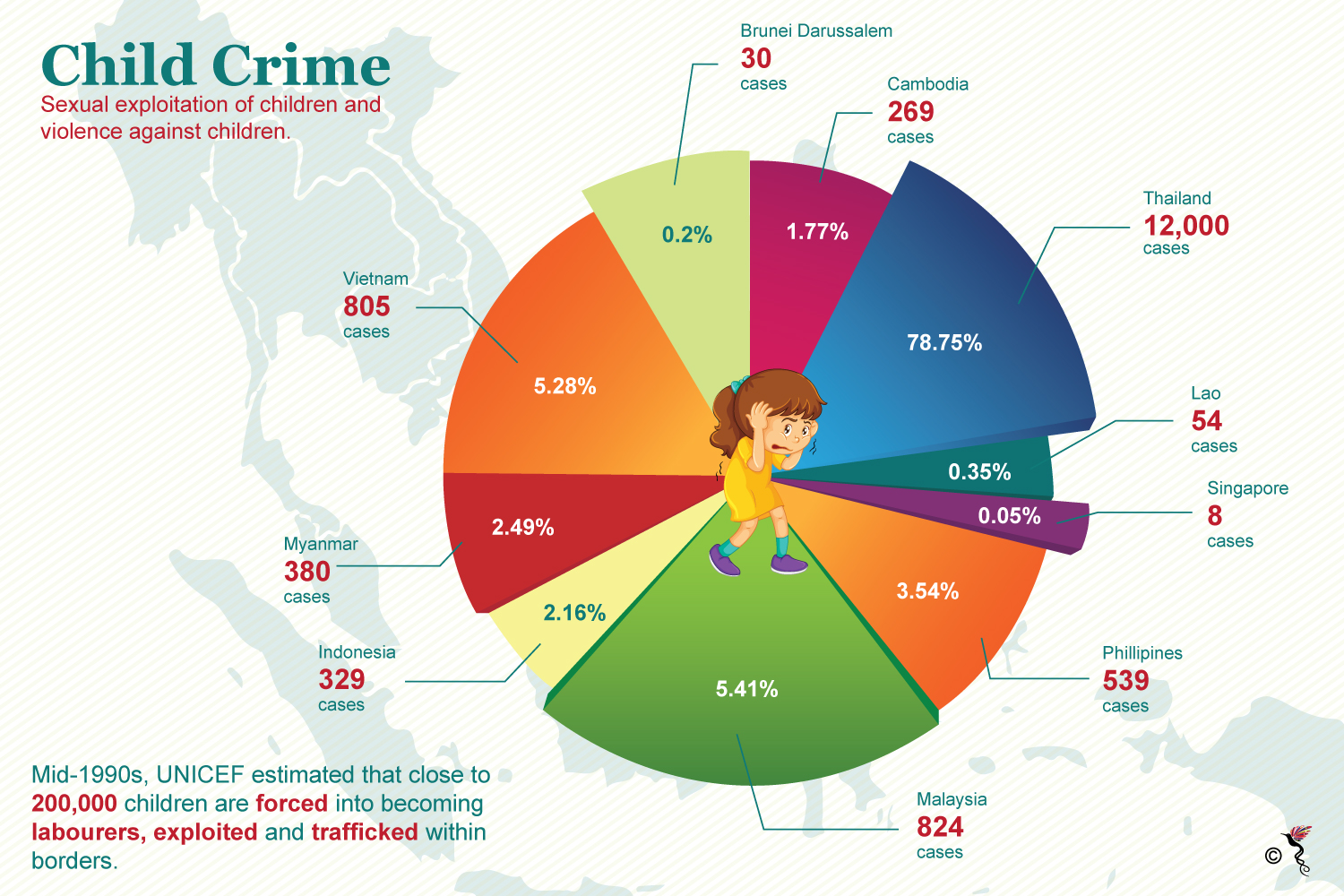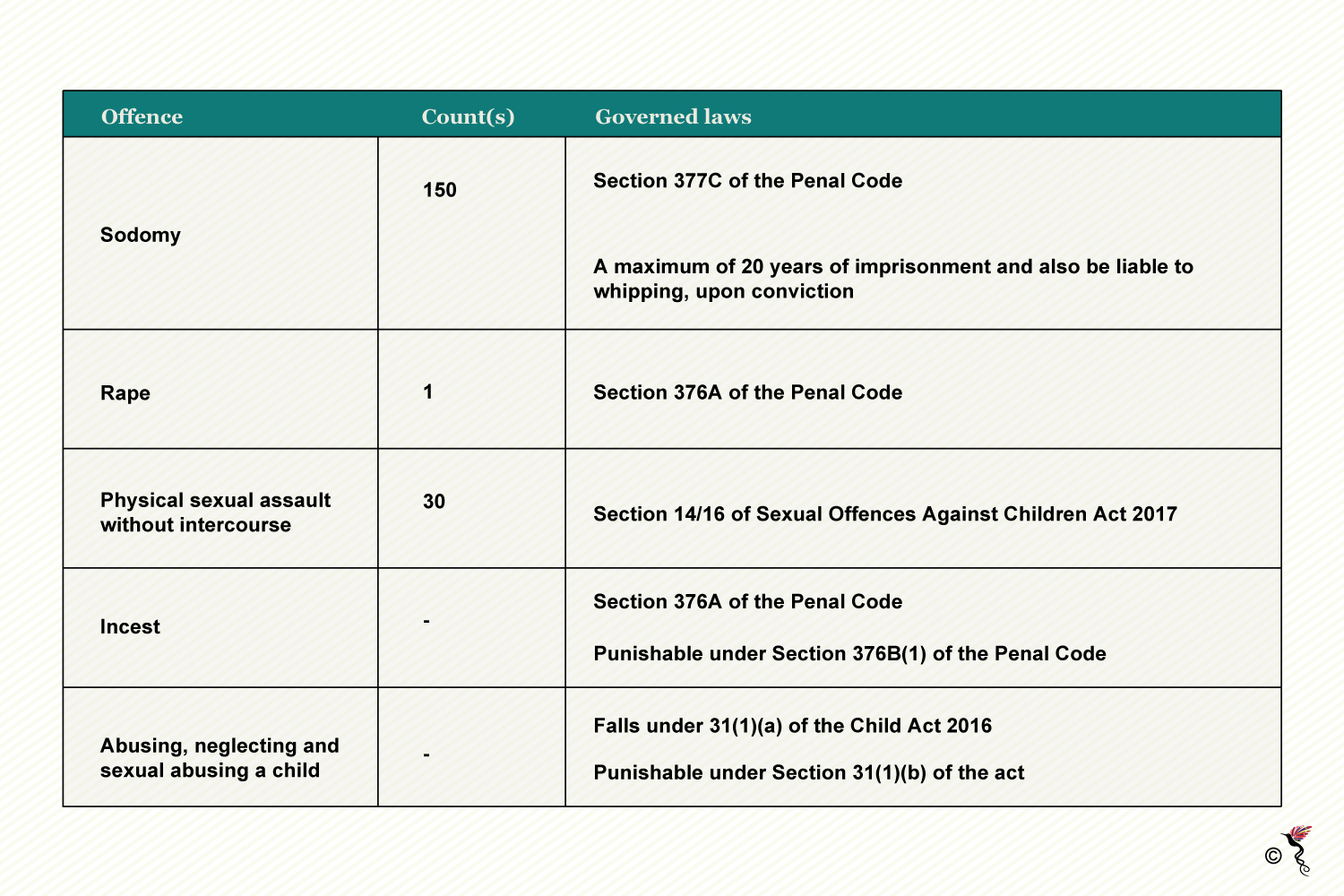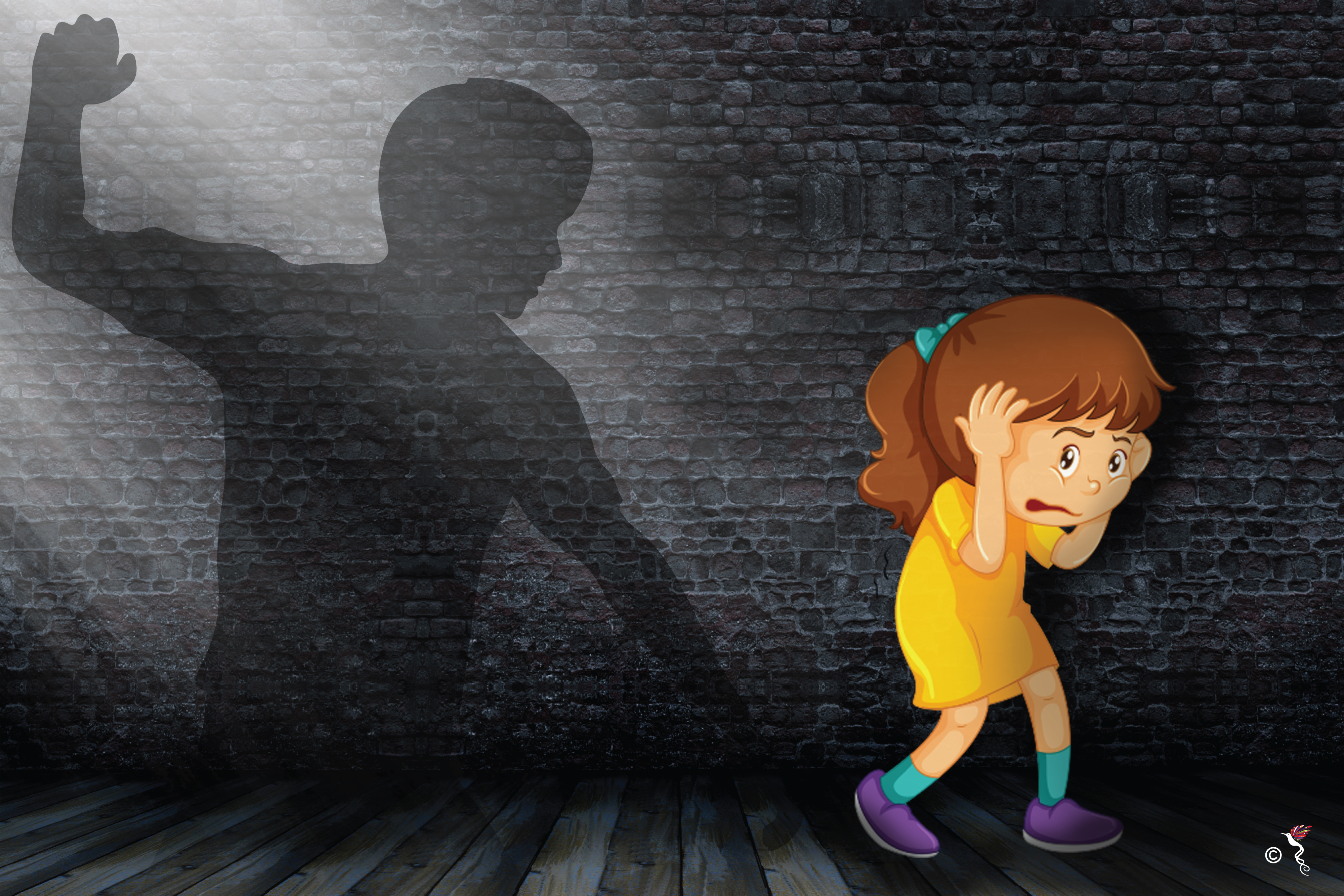Every child deserves a childhood free from abuse. Children who are sexually abused may suffer from long-term emotional and physical problems if not provided with the correct counselling and support. Abuse in children younger than seven can lead to irreversible behaviour and personality changes.
With the rising incidents of child sexual abuse cases in the ASEAN region, all relevant parties (e.g. lawmakers, judiciary system, law and order, counsellors) must collaborate with each other in formulating prevention and care plans. The child’s best interest must be kept in mind when formulating these plans – in terms of confidentially and sensitivity of this matter.
According to The United Nations Children’s Fund (UNICEF), in 2016, Thailand scored the highest child sexual crime cases (at 12,000 cases) compared to its ASEAN counterparts.

Number of child sexual abuse cases in ASEAN countries
A recent child sexual assault case in Malaysia garnered the attention of global media worldwide. A 36-year old divorcee is being charged with 599 counts of sodomising his teenage daughter, one count of rape and 30 counts of committing physical sexual assault without intercourse since she was 13. When his charges were read out to him at the Special Criminal Court for cases involving sexual crimes against children, the accused pleaded not guilty.

Laws governing the child sexual assault case in Malaysia
Is ASEAN doing enough?
Although the individual member states and ASEAN already have different bodies and laws overseeing this matter, why are we still experiencing a rise in child sexual abuse cases? It is only getting from bad to worse. There’s seems to be discrepancies between having a system in place and implementing it. What are we really lacking?
The ASEAN Commission on the Promotion and Protection of Rights of Women and Children (ACWC) has identified Elimination of Violence against Children (EVAC) as a priority area to be addressed. ACWC has various initiatives lined up under EVAC, but they face uneven outcome in the implementation and progress stages.
The bigger challenge is that many child sexual abuse cases go undocumented. There is a larger need to fill in the gaps in terms of data collection, analysis, evidence-based studies and monitoring. The findings will help ACWC have an in-depth understanding of its magnitude and nature, before developing effective policies or programmes. Furthermore, a comprehensive legal ban on sexual violence against children is not yet in place for all ASEAN countries. Some ASEAN countries are also yet to develop National Plans of Action (NPA) to support the implementation of related laws and policies.
The ACWC has lined out an 8-stage regional action plan that covers a period of 10 years from 2016 to 2025. The ACWC has zero tolerance for any form of EVAC and the ultimate goal is to eliminate these crimes from ASEAN countries. The action plan will be effective prevention and protection services supported by individual countries’ legal framework and institutional mechanisms.
The Special Criminal Court handing cases of child sexual abuse in Malaysia – is first of its kinds in Southeast Asia. The special court will expedite hearings involving children and be presided over by Sessions Court judge whom has 25 years of experience in handling cases of such nature. A safe and conducive waiting room for child witnesses will also be available at the courtroom. The waiting room includes a small room for children to testify against their sexual offenders – and spare them from re-living their traumatic experiences. This special court system and waiting room is something that can be adopted across the ASEAN region to combat sexual crime against children.
When The ASEAN Post spoke to Dr. Shobna Gunaseelan (DClinPsy) from The School of Positive Psychology in Singapore, she said “Besides having relevant laws and policies, we need to locate and prepare a proper social support system for children with sexual abuse and all other types of abuse cases. When a child sexual abuse is detected at their homes, assessments must be done to validate and verify prior to taking any actions. Firstly, the child must be removed from the environment for counselling under the supervision of a Child Protection Specialist. This prevents from the child undergoing re-victimisation and additional trauma. The perpetrator must then be sentenced legally and counselling be made mandatory as well.”
Sadly, we fail to look beyond law enhancements and judicial punishments even though its preventive effect on child sexual abuse is proven negligible. Children are continually being sexually abuse all over ASEAN. The expectation for new laws and judicial system takes the emphasis away from the flaws of our criminal justice system. Before proposing any change in law or juridical system, the nature and cause of child sexual abuse cases and the profile of victims and offenders must be studied.
